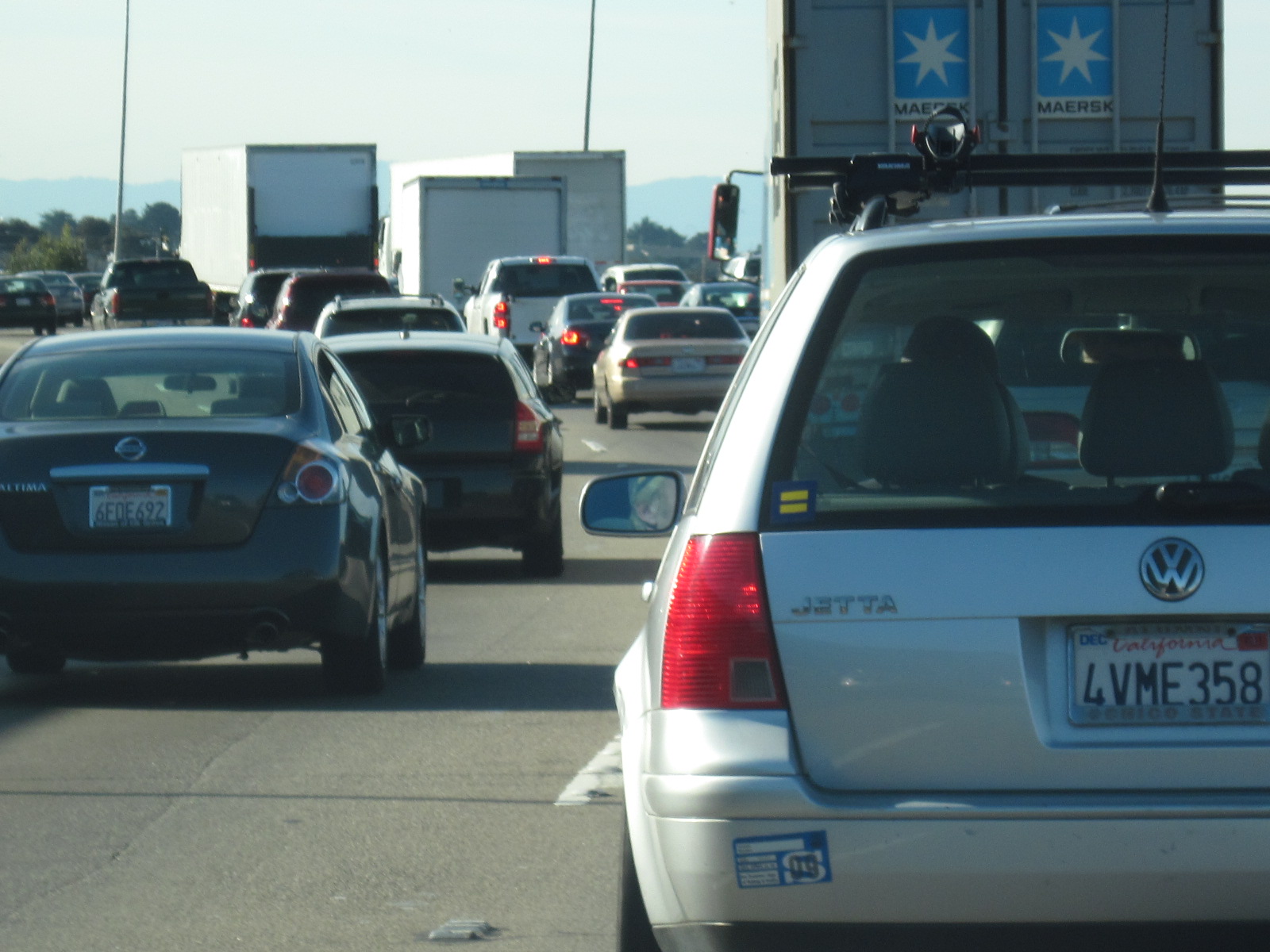Critics say long-term, San Diego’s plan will add greenhouse gas emissions, not reduce them

The spotlight is on San Diego to lead the way on regional transportation planning that reduces greenhouse gas emissions. But critics say that the regional planning agency’s proposal is anything but a model for sustainable planning.
San Diego’s regional planning agency, SANDAG, is the first to develop a plan since California passed a law requiring that regions try to reduce greenhouse gas emissions through land use and transit planning. The law, SB 375, went into effect in 2010, and falls under the Air Resources Board’s Sustainable Communities program. The ARB approved SANDAG’s plan when it was submitted in November of 2011, saying it would meet short-term greenhouse gas reduction targets for 2020-2035.
Critics of the SANDAG plan, including the Cleveland National Forest Foundation, the Center for Biological Diversity and the Sierra Club, say that the plan focuses too much on expanding freeways that extend into the far-reaches of the county and not enough on improving public transportation, bicycle infrastructure and pedestrian walkways in the more urban areas. Today, the State Attorney General’s office put out a statement agreeing that:
“…the plan does not adequately address air pollution and climate concerns and prioritizes expanding freeways while delaying public transit projects.”
The statement also cited the region’s poor air quality and the need to invest in a healthy future for its citizens.
The SANDAG plan has been carefully watched by planners and governments across California because it’s the first plan adopted under SB 375. “This is the first SCS [Sustainable Community Strategy], it’s a 40-year plan and it’s flawed,” claims Rachel Hooper, a managing partner at Shute, Mihaly and Weinberger, the firm representing the environmental groups. “It should not serve as a precedent for other transportation agencies as they adopt their SCSs in the future.”
[module align=”left” width=”half” type=”pull-quote”]”What we have is a plan that is rooted in the past.”[/module]
For its legal clout, the suit draws on the California Environmental Quality Act (CEQA) which requires an environmental review of government projects, including impacts from air pollution and global warming. According to the Attorney General’s statement, the crux of the legal argument is that SANDAG cut corners with its Environmental Impact Report (EIR) and “did not adequately analyze the public health impacts of the increased air pollution.”
“What we have is a plan that is rooted in the past, in transportation planning that we saw in the 1960s,” said Hooper, who claims SANDAG ignored suggestions for ways in which the plan could be improved to comply with state law. She said that the Attorney General’s decision to join the suit underscores the importance of getting this first plan right, so that it will be a sound model for other transportation agencies to follow.
A representative from SANDAG told Forbes that his agency worked hard to come up with a good plan that he believes is in compliance with CEQA.
3 thoughts on “State Joins Suit against San Diego Regional Transportation Plan”
Comments are closed.

Save our air quality! There should be at least a half decent plan instead of the SANDAG plan for San Diego’s future! Kudos to our attorney general for joining activists and the Sierra Club with his credibility.
SB375 is just a way to control how and where the people of California will live in the next 30 years. It has nothing to do with reducing green house gases. These environmental wack jobs are going to sue everyone to the stone age. This is about control and money. Air quality will not get better by forcing people to live in stack and pack dense populated areas unless you force everyone out of their cars. Oh……. yeah…… that’s what they want to do to us. Steinberg and his cronies in SAC who passed this nightmare bill should all be voted out! California is going down the tubes because of B.S. bills like this that only seek to tax people out of their homes and cars.
I hope they speed up the building of transit projects. Even if we do have more freeways I can’t afford to drive so it would be nice to have that option and have it be competitive time wise with driving.